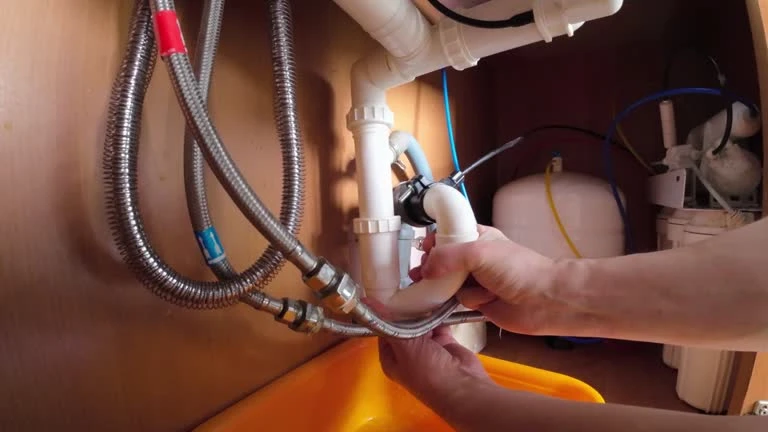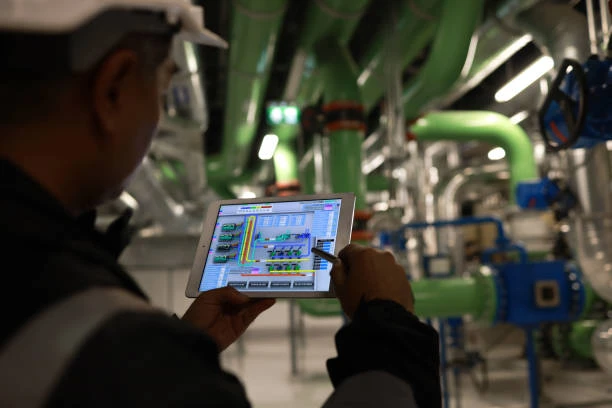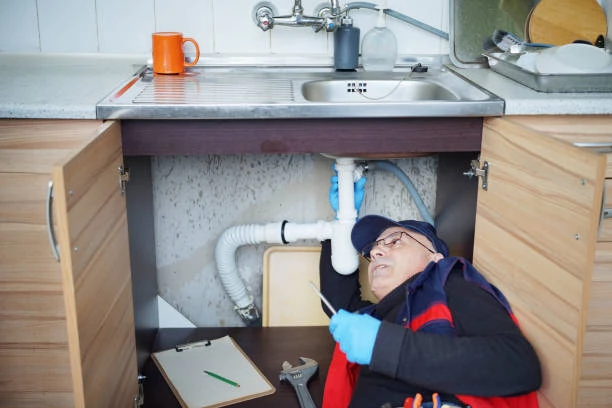PVC (Polyvinyl Chloride) pipes have become a fundamental part of modern plumbing, irrigation, and construction industries due to their durability, corrosion resistance, and affordability. One of the key factors that determine the suitability of a PVC pipe for specific applications is its diameter. PVC pipes come in a wide range of diameters, each suited to particular tasks. Understanding the differences between PVC pipe diameters allows engineers, contractors, and homeowners to select the most appropriate size for their needs. This article will explore the significance of PVC pipe diameters, their various applications, and the factors that influence diameter selection.
Understanding PVC Pipe Diameters
When selecting PVC pipes, it is crucial to understand how diameters influence performance. PVC pipe diameters are typically measured in inches, representing the internal width of the pipe. Manufacturers produce these pipes in both small and large diameters, which serve distinct functions. Common diameters range from ½ inch to 24 inches, with each size catering to specific needs. A smaller diameter restricts the flow of liquid or gas, while a larger diameter allows for greater capacity and faster flow.
In most plumbing and irrigation applications, pipe diameters directly affect the flow rate, pressure, and overall efficiency of the system. Larger diameters increase the pipe’s capacity to handle higher volumes, making them ideal for systems that require transporting large quantities of water or other fluids. In contrast, smaller diameters work best in situations where precise control and lower volumes are necessary.
Small-Diameter PVC Pipes (1/2 Inch to 2 Inches)
Small-diameter PVC pipes, ranging from ½ inch to 2 inches, serve various applications that require lower flow rates or tighter installation spaces. In residential plumbing systems, ½-inch and ¾-inch pipes typically deliver potable water to faucets, showers, and other household fixtures. The smaller diameter provides sufficient pressure for these uses without overloading the system.
Garden irrigation systems often utilize 1-inch or 1½-inch PVC pipes to distribute water to sprinklers and drip irrigation networks. These pipes offer enough capacity to cover moderate areas, and their small size makes them easier to install in gardens or other confined spaces. Farmers also prefer small-diameter PVC pipes in greenhouse irrigation setups, where controlling water flow is essential for nurturing delicate plants.
In addition, contractors rely on small-diameter PVC pipes for electrical conduits in residential and commercial buildings. These pipes protect electrical wiring and provide a safe, insulated environment that shields cables from external elements. The small diameter makes installation easier, especially in walls, ceilings, and other tight spaces where larger pipes would be impractical.
Medium-Diameter PVC Pipes (2 Inches to 6 Inches)
Medium-diameter PVC pipes, ranging from 2 inches to 6 inches, offer greater capacity and versatility. These pipes frequently appear in municipal water distribution systems, where they transport potable water from main supply lines to individual households or businesses. The larger diameter ensures that the system can handle the increased demand for water in urban and suburban settings.
For drainage systems, 4-inch and 6-inch PVC pipes play an essential role. Contractors use them to carry away wastewater, stormwater, and sewage from homes, commercial buildings, and roads. Their size allows for efficient drainage of large areas, reducing the risk of flooding or water damage. These medium-diameter pipes also serve as key components in underground infrastructure, where they handle significant amounts of water and waste.
In agriculture, medium-diameter PVC pipes provide the backbone for irrigation networks that cover large fields. Farmers use these pipes to transport water from wells or reservoirs to irrigation systems, ensuring that crops receive adequate hydration during dry periods. The increased capacity offered by larger diameters enables farmers to irrigate vast areas more effectively.
Large-Diameter PVC Pipes (8 Inches to 24 Inches and Above)
Large-diameter PVC pipes, ranging from 8 inches to 24 inches and beyond, cater to industrial and municipal applications where high flow rates and large capacities are essential. These pipes play a critical role in main water distribution lines, where they transport significant volumes of water across cities and towns. Engineers rely on large-diameter PVC pipes to supply water to multiple neighborhoods or business districts, ensuring consistent delivery even during peak demand periods.
Municipal sewage systems also depend on large-diameter PVC pipes to handle the vast quantities of waste produced by urban populations. These pipes efficiently transport wastewater to treatment plants, where it undergoes filtration and purification. Large-diameter pipes allow for smoother flow and minimize blockages or backups, which can disrupt city infrastructure.
In industrial settings, large-diameter PVC pipes provide the capacity to transport chemicals, gases, or other materials over long distances. Factories and chemical plants use these pipes in manufacturing processes, ensuring a consistent flow of materials between different areas of production. The chemical resistance and durability of PVC make it an ideal material for handling corrosive substances that might damage other pipe types.
Factors Influencing Diameter Selection
Several factors influence the selection of PVC pipe diameters, including flow rate, pressure, and space constraints. Engineers and contractors must carefully assess these factors to ensure that the chosen pipe meets the specific requirements of the project.
- Flow Rate: Larger diameters allow for greater flow rates, making them ideal for systems that require fast or high-volume transportation of water, chemicals, or other fluids. Smaller diameters work best when controlling flow rates is critical, as they provide greater precision.
- Pressure Requirements: High-pressure systems, such as municipal water distribution networks, often require pipes with larger diameters to handle the increased pressure without causing damage. Smaller pipes, on the other hand, are better suited for lower-pressure systems, such as residential plumbing.
- Space Constraints: In some applications, available space limits the use of larger-diameter pipes. Contractors must consider the space in which the pipe will be installed, particularly in residential or commercial buildings where space may be limited. In these cases, smaller-diameter pipes offer a more practical solution.
- Cost Efficiency: Larger-diameter PVC pipes tend to be more expensive due to the increased material required to produce them. Smaller diameters offer a more cost-effective option for applications that do not require high capacities.
Specialty PVC Pipe Diameters
Manufacturers also produce specialty PVC pipes in non-standard diameters for specific applications. These include custom sizes designed to meet the unique needs of industrial processes or large-scale infrastructure projects. Some industries, such as mining or chemical manufacturing, require pipes with unique diameters to handle hazardous materials, and PVC provides a flexible solution due to its ease of customization.
IFAN is a brand that offers products that meet a wide range of international standards, ensuring the quality and reliability of every product. Upvc product standard including:BS 3505, BS 4346, ASTM D1785 SCH40, ASTM D1785 SCH80, DIN, GB, DWV, ASTM D2665, ASTM D2241, ASTM D2665, ASTM D2729, ASTM F441/F441M, ISO 1452 series, EN ISO 1452, DIN 8061/8062, GB/T 10002 series, AS/NZS 1477, JIS K6741, CSA B137.3, NSF/ANSI 14, TIS 17-2532/1131-2535. IFAN is committed to providing high quality products and excellent service!
Conclusion
PVC pipe diameters play a crucial role in determining the functionality, efficiency, and performance of piping systems. Whether used in residential plumbing, municipal water distribution, industrial settings, or agriculture, the wide range of diameters available ensures that PVC pipes can meet the demands of various applications. Understanding how different diameters impact flow rates, pressure, and installation constraints allows users to make informed decisions, ensuring that their systems run smoothly and efficiently. The versatility of PVC pipes across these diameters continues to make them a go-to solution for industries worldwide.
Connect
IFAN is a Chinese manufacturer of plastic pipes, fittings and valves with 30 years of experience. If you are interest in IFAN copper fittings, copper valves, plastic pipes and fittings, please contact us. IFAN offers you a variety of standard pipes to meet your specific needs. Click below to learn more about IFAN’s wide range of affordable and cost-effective valve products and piping system related products.
We will reply your email or fax within 24 hours.
You can call us at any time if there is any question on our production.
For more information,pls visit our webside https://waterpipefitting.com/
Pls Mailto: [email protected]
Whatsapp: + 86 19857948982














Recent Comments